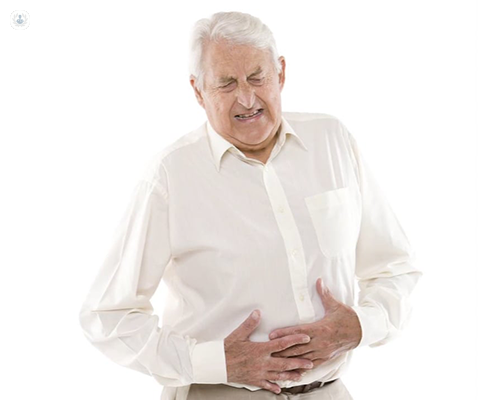Diverticular disease and diverticulitis: a cause for concern?
Written by:Both diverticular disease and diverticulitis are related conditions affecting the colon (the large intestine). Diverticular disease causes bulges, called diverticula, to form in the lining of the colon. Diverticulitis occurs when these bulges, or pockets, become infected.

How are diverticular disease and diverticulitis caused?
The reason why diverticula appear in the colon is still not known. One theory is that a diet low in fibre may play a part in the development of diverticula as the colon has to work harder to pass stool. This extra pressure could cause the bulges to form in weaker areas in the colon. When bacteria grows in these bulges, inflammation or infection can occur. This is known as diverticulitis, but doctors are still not sure why it happens.
Other possible diverticular disease risk factors include:
- Being overweight
- Smoking
- History of constipation
- Use of certain drugs such as non-steroidal anti-inflammatory drugs (NSAIDs), and painkillers such as ibuprofen
- Being closely related to someone with diverticular disease
Cases of people with diverticula increase with age. Around 5% of the population have diverticula by the time they reach 40, and around 50% have them by 80 years old.
What are the symptoms?
25% of people with diverticular disease will exhibit symptoms like abdominal pain. If diverticular disease develops into diverticulitis, symptoms become much more severe. Diverticulitis symptoms, which may last a few hours or even weeks, include:
- Abdominal pain, usually in the lower left-hand side, worsening during movement
- Fever
- Chills
- Bloating and gas
- Loss of appetite
- Constipation or diarrhoea
- Nausea and occasional vomiting
Treating diverticular disease and diverticulitis
Treatment of diverticular disease and diverticulitis depends on the severity of symptoms. In order to alleviate symptoms of diverticular disease, it is recommended to follow a diet high in fibre. Paracetemol may also be advised in order to deal with pain caused by diverticulas. Painkillers such as ibuprofen and aspirin are not advisable as they can cause stomach problems.
In order to treat mild cases of diverticulitis, the patient is usually prescribed a course of antibiotics. More severe cases of diverticulitis may require hospital treatment. Occasionally surgery is necessary in order to remove the part of the intestine where the diverticulitis is present.
If you have any of the symptoms mentioned above, or just want more information regarding these conditions, get in touch with a GP or specialist.


